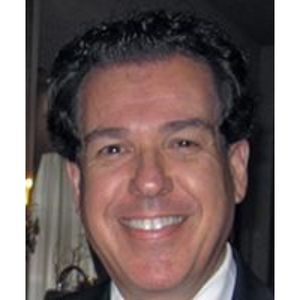This Sunday's Memorials
Bess Michas - 2 years
Mary Chrisos - 2 years
Christos Tsopanoglou - 9 years
Sultana Crosby - 18 years
Ray Crosby - 46 years
As a Reminder - Face Masks are Still Required for Inside the Sanctuary
Regardless of vaccination status, it is once again time to wear a face mask while inside, i.e. - while inside our sanctuary and/or fellowship hall.
Until further notice, we, as good Orthodox Christians and as good friends and neighbors, will comply with the requirement, direction, and guidance from the California Department of Public Health (CDPH) and the County of San Diego, to mask up while inside our sanctuary.
Besides vaccination, the face mask is the other most viable and useful weapon/tool we have to help combat the rise in covid cases. Thus, let us all comply with this new requirement and temporay minor inconvenience in our communal effort to protect ourselves and one another. ...there is no greater love than that... (John 15:12;13).
Once again, your consideration, patience, understanding, love, and support are greatly appreciated.
Divine Services for the Feast Day of Saint Gregory the Theologian - Tuesday, January 25th
The Orthros/Prepatory Services begins at 9:00 am followed by the celebration of the Divine Liturgy.
We will also Chrismate George McClure (the father of Katie McClure) on that day and welcome him to the Greek Orthodox Faith.
St. Basil’s Vasilopita Cutting
God’s blessing in the New Year to those who received the blessed coins, from last week’s Vasilopita and notified the church office: Vasiliki Chios, Michelle Defelippi, and Fred Georggin.
St. Spyridon Bookstore
Ring in the New Year with the 2022 Daily Lives, Miracles and Wisdom of the Saints, and Fasting Calendar. Pick up your copy today in the bookstore.
Philoptochos Beautifully Decorated Icons for Veneration Inside the Church
Philoptochos invites you and your family to commemorate a special Feast Day by offering a donation towards the cost of a beautifully decorated icon which will be displayed in the church Narthex for all to venerate. This offering, a floral adornment around the blessed icon, is a perfect way to honor both your family member(s) as well as an important day in the life of the Church. Throughout the liturgical year there are many opportunities to select a decorated icon, so please reserve your dates now (see below). A suggested donation of $75 payable to St. Spyridon Philoptochos is much appreciated. To reserve your date, please contact the office: (619) 297-4165 or office@stspyridon.org. Thank you!
Icons Currently Available for February:
Sunday of the Publican & the Pharisee - February 13th
Judgment Sunday - February 27th
GOYA Roller Skating This Saturday
GOYANS join us this Saturday, January 22nd at 5:00 pm in Linda Vista for “Roller Skating and dinner”. Meet PROMPTLY at 5 pm at Skateworld San Diego - 6907 Linda Vista Road, San Diego, 92111. We will eat at Skateworld. Parents, please pick your kids up at 8 pm. A waiver MUST be signed for each skater so please contact Bill Navrides at navridesfamily@gmail.com or (619) 992-6775.
Greek Language Classes for Adults and Children
Spring semester begins on February 1, 2022. For more information on class schedule, tuition, and registration, please visit our school website at http://www.stspyridongreekschool.org/
Upcoming Memorials
January 30th - Katherine Navrides - 6 months
January 30th - Ernest Navrides - 32 years
January 30th - William Navrides - 58 years
February 6th - Gregory Star - 40 days
February 6th - Peter Kapsimalis - 16 years
Philoptochos Save the Date
We invite you to attend the Annual Philoptochos Membership Drive and Luncheon on Saturday, March 5th at 11:30 a.m. in the Cypress Room. Please make your reservations with the Church office - (619)297-4165 or office@stspyridon.org
Please see the Philoptochos Membership flyer in the "Inserts & Fliers" section.
The Papanicolaou Scholarship Fund
Notice: The Papanicolaou Scholarship Fund isn’t offering a scholarship this year. As soon as the committee reviews its policies and procedures and is ready to restart offering the scholarship, we will notify you. Thank you, The Papanicolaou Scholarship Committee
Philoptochos is Asking for Sunday Fellowship Sponsors
We need your help in providing the refreshments that we share during this time of fellowship. Please consider sponsoring with your friends and family. Let's keep it simple by providing cookies or donuts, fruit and juice. To sign up contact Anne Zouvas at (619) 248-6644. Thank you for your support!
Hellenic College Holy Cross - CrossRoad is Coming to San Francisco: Summer 2022
Through the leadership of Metropolitan Gerasimos and the generosity of The George and Judy Marcus Family Foundation, CrossRoad will host one of its three sessions in San Francisco, California. The CrossRoad Summer Institute is a 10-day summer program, offered through the Office of Vocation and Ministry at Hellenic College Holy Cross, which invites high school juniors and seniors to “explore their faith like never before.” Applications are due by February 22, 2022. For more information, visit www.crossroadinstitute.org.
Please see the CrossRoad flyer in the "Inserts & Fliers" section.
Give Back 0.5% From “Amazon Smile” Foundation
We remind you to please participate in the AmazonSmile program. When you shop on Amazon, the AmazonSmile Foundation will give back 0.5% of your purchase price to St. Spyridon Greek Orthodox Church. That’s right, every eligible/registered purchase you or someone else makes at AmazonSmile 0.5% will be donated back to your parish!!!
It's quick and easy to register by visiting AmazonSmile (smile.amazon.com) and select “St. Spyridon Greek Orthodox Church” before you make your first purchase (be sure to select St. Spyridon Greek Orthodox Church - San Diego, California).
For more information about AmazonSmile, go to http://smile.amazon.com/about
We hope you’ll consider this easy way to support your beloved parish. Everyone is eligible to participate so tell your friends and relatives and spread the word about this wonderful opportunity.
Your Legacy and Your Church
...to whom much is given; from them much more is required (Luke 12:48).
Please remember to include your Saint Spyridon parish in your estate plan and bequest.





 This series is a 5-week commitment, which includes a small group led by one of our YES leaders. Beginning on Tuesday, January 25th, 2022 we will come together weekly to have conversations about how to create communities in the Church where our doubt and darkness can be welcomed with love and faced without fear.
This series is a 5-week commitment, which includes a small group led by one of our YES leaders. Beginning on Tuesday, January 25th, 2022 we will come together weekly to have conversations about how to create communities in the Church where our doubt and darkness can be welcomed with love and faced without fear.
 Archon Peter Clyde Nicholas Papadakos Esq., 66, of McKeesport, fell asleep in the Lord on Friday, Jan. 14, 2022. He was born July 27, 1955, in McKeesport, and was the son of the late Archon Nicholas and Stavroula "Stella" Sakellariou Papadakos.
Archon Peter Clyde Nicholas Papadakos Esq., 66, of McKeesport, fell asleep in the Lord on Friday, Jan. 14, 2022. He was born July 27, 1955, in McKeesport, and was the son of the late Archon Nicholas and Stavroula "Stella" Sakellariou Papadakos.